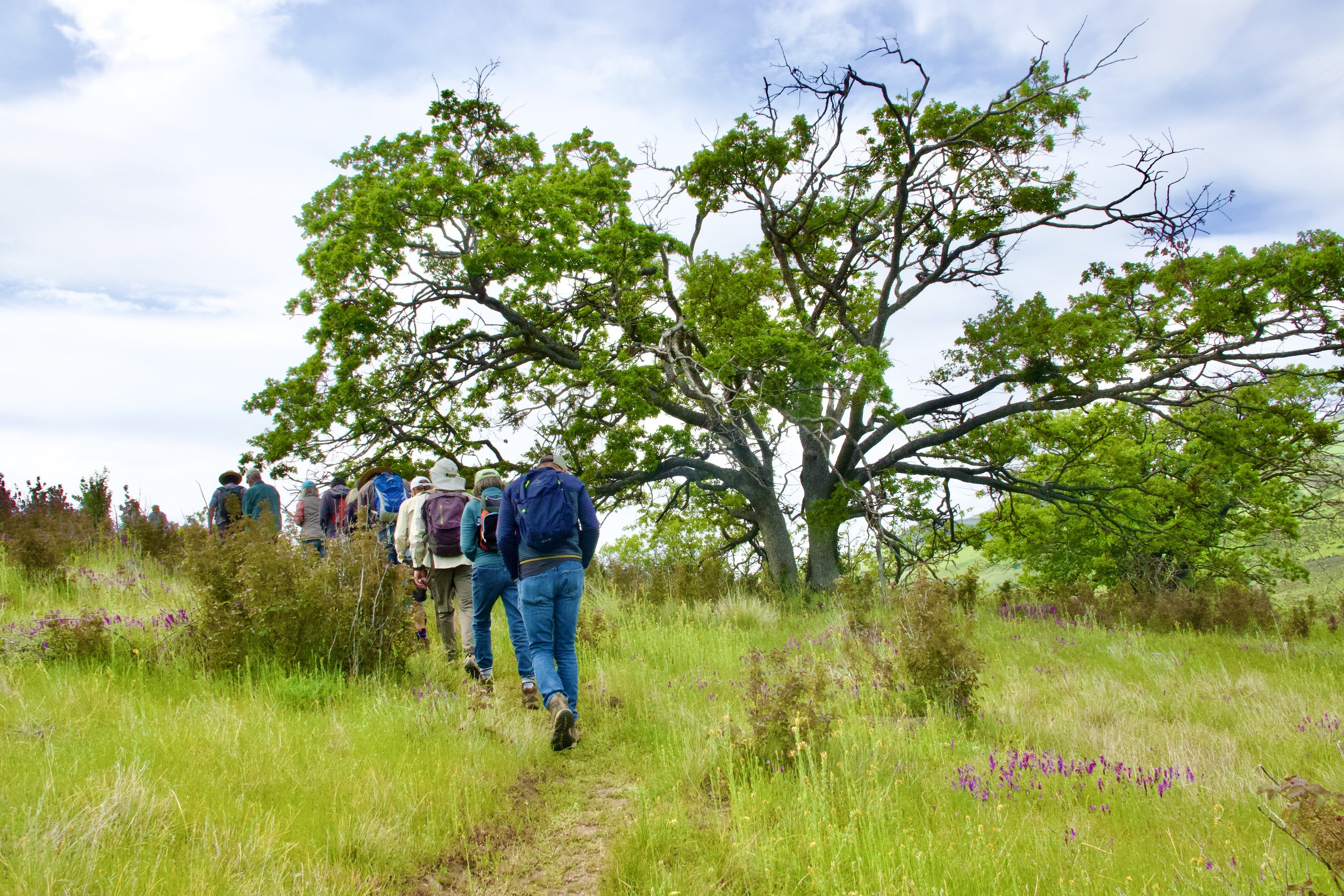Conservation Book Club
Love reading? Love nature? Then consider joining our Conservation Book Club! The group decides where and when to meet and which compelling books to discuss in the future. This book club meets quarterly. We discuss local and planet-wide conservation issues and are inspired by our readings, personal experiences, and good conversations.
The next meeting of this book club will be on Tuesday, September 18, at 6:30 pm. We will be meeting at a private home in Ashland for a discussion of Becoming Animal: An Earthly Cosmology by David Abrams.
This is a free club and all are welcome. By the way, finishing the selected book is not a requirement for attendance!
Come join us!
We receive a 20% discount from Bloomsbury Books for our book selections. For details about the discount and to sign-up to receive email notifications about book club meetings, contact Kristi at kristi@landconserve.org or 541.482.3069 Ext 105.
Wikipedia:
"In 2010 Abram published Becoming Animal: An Earthly Cosmology, which was the sole runner-up for the inaugural PEN Edward O. Wilson Award for Literary Science Writing, and a finalist for the Orion Book Award. A review in Orion described the book thus: "[A]n intricately textured, deep breath of a book that blurs the boundaries between human and animal, mind and earth..." A review by Potawatomi author Robin Wall Kimmerer claimed:
With prose as lush as a moss-draped rain forest and as luminous as a high desert night, David Abram reminds us of what we already know, but have allowed the artifices of technology and over-reliance on abstract intelligence to dull: We are each of us gifted with animal senses that languish without exercise, and that can excite and nourish our spiritual and sensual engagement with the world. Deeply resonant with indigenous ways of knowing, Becoming Animal reminds us of the porosity of the boundary between ourselves and the more-than-human world. Abram lets us listen in on wordless conversations with ancient boulders, walruses, birds, and roof beams. His profound recognition of intelligences other than our own enables us to enter into reciprocal symbioses that can in turn, sustain the world.
In the UK, a review in the journal Resurgence said: "Without doubt one of America's greatest nature writers, one who ably follows in the footsteps of Muir, Thoreau and Leopold...The language is luminous, the style hypnotic. Abram weaves a spell that brings the world alive."












